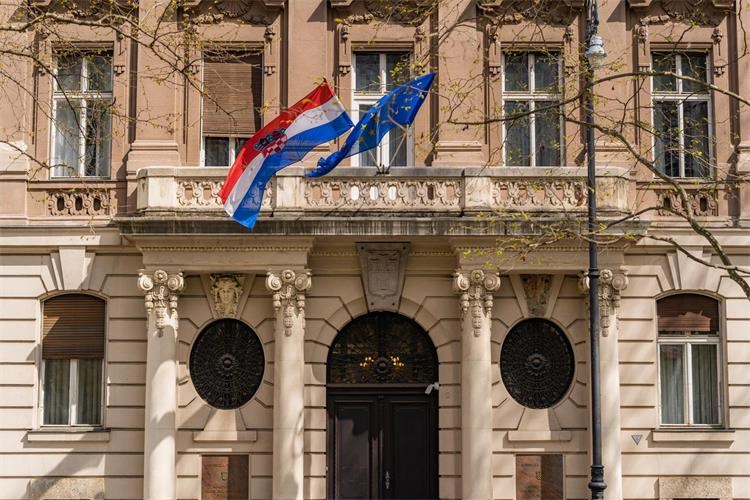- Published: 12.01.2024.
Getting the Apostille stamp on the Canadian official documents for the use in Croatia
Apostille Convention comes into effect in Canada on January 11, 2024, authenticated documents will include a standard certificate called an apostille. The apostille eliminates steps required to get documents accepted in countries where the convention is in effect, including the legalization by a consular office of the country of destination. This will simplify the acceptance of Canadian public documents in the more than 120 countries that have signed the convention.
As of January 11, 2024, competent authorities in some provinces will be responsible for issuing an apostille and Global Affairs Canada will be responsible for issuing apostilles for documents issued by the Government of Canada and for documents issued or notarized in specific provinces and territories.
As of January 11, 2024, competent authorities in the following provinces will be responsible for issuing apostilles for documents issued or notarized in their respective provinces:
Regardless of where your document was issued, if your document was notarized in Alberta, Ontario, or Saskatchewan, you will send it to that province's competent authority.
In British Columbia and Quebec, the Competent Authority can authenticate a notarized document only if the original document was issued in the province.
* * * * * * * * * * * * * * * * * * * * * * * * * *
Documents for which Global Affairs Canada will issue apostilles
You will send the following documents to Global Affairs Canada:
Authentication of documents: 1. Before you start (international.gc.ca)
Some documents need to be notarized before a competent authority can authenticated them. This may include some documents issued by the Government of Canada. Once the Apostille Convention comes into effect, the province or territory where your document was notarized is what will determine the competent authority where you must send it.
We will continue to accept documents issued or notarized in Alberta, British Columbia, Ontario, Quebec or Saskatchewan until January 10, 2024. To submit these documents between now and then, follow the current requirements found on the Authentication of documents website.
If we receive these documents after January 11, 2024, we will return them to the applicants without being authenticated
News
As of January 11, 2024, competent authorities in some provinces will be responsible for issuing an apostille and Global Affairs Canada will be responsible for issuing apostilles for documents issued by the Government of Canada and for documents issued or notarized in specific provinces and territories.
As of January 11, 2024, competent authorities in the following provinces will be responsible for issuing apostilles for documents issued or notarized in their respective provinces:
- Alberta, Ministry of Justice of Alberta
https://www.alberta.ca/document-authentication-other-jurisdictions-countries - British Columbia, Ministry of the Attorney General of British Columbia https://www2.gov.bc.ca/gov/content/governments/government-id/guide-to-the-authentication-of-documents
- Ontario, Ministry of Public and Business Service Delivery of Ontario
https://www.ontario.ca/page/authenticate-document-use-outside-canada - Quebec, Ministère de la Justice du Québec
https://www.quebec.ca/en/justice-and-civil-status/services/applying-apostille - Saskatchewan, Ministry of Justice and Attorney General of Saskatchewan
https://www.saskatchewan.ca/government/notarized-documents-legislation-maps/authenticating-notarized-documents
Regardless of where your document was issued, if your document was notarized in Alberta, Ontario, or Saskatchewan, you will send it to that province's competent authority.
In British Columbia and Quebec, the Competent Authority can authenticate a notarized document only if the original document was issued in the province.
* * * * * * * * * * * * * * * * * * * * * * * * * *
Documents for which Global Affairs Canada will issue apostilles
You will send the following documents to Global Affairs Canada:
Authentication of documents: 1. Before you start (international.gc.ca)
- Documents issued by the Government of Canada
- Documents issued or notarized in the following provinces and territories:
- Manitoba
- New Brunswick
- Newfoundland and Labrador
- the Northwest Territories
- Nova Scotia
- Nunavut
- Prince Edward Island
- Yukon
Some documents need to be notarized before a competent authority can authenticated them. This may include some documents issued by the Government of Canada. Once the Apostille Convention comes into effect, the province or territory where your document was notarized is what will determine the competent authority where you must send it.
We will continue to accept documents issued or notarized in Alberta, British Columbia, Ontario, Quebec or Saskatchewan until January 10, 2024. To submit these documents between now and then, follow the current requirements found on the Authentication of documents website.
If we receive these documents after January 11, 2024, we will return them to the applicants without being authenticated


